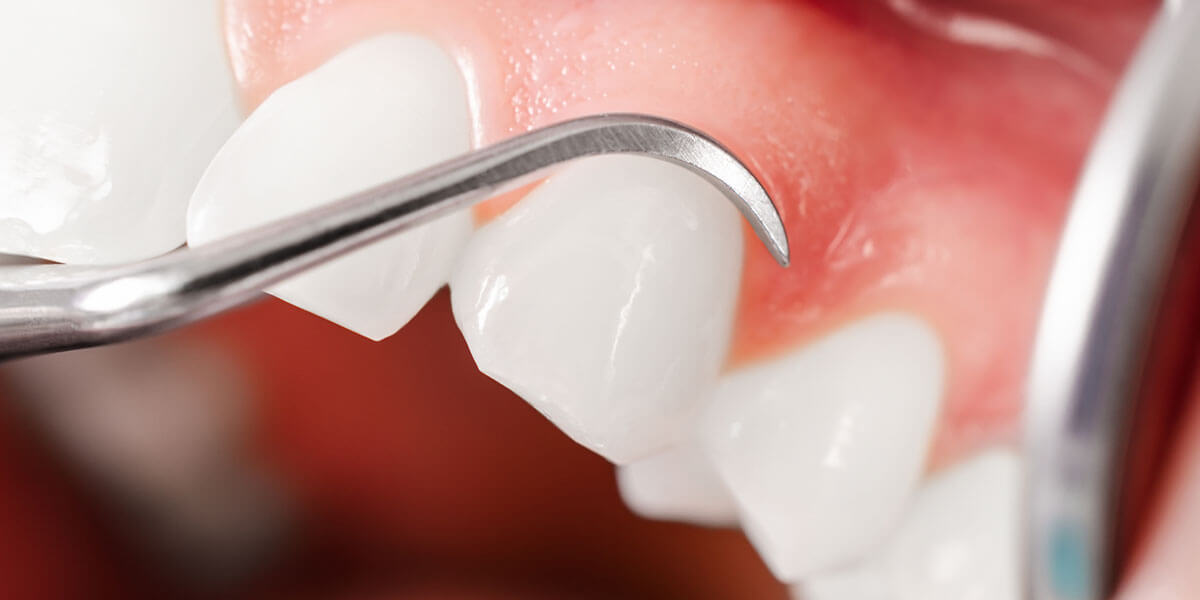Scaling and Root Planing

Scaling and root planing is a non-surgical procedure used to treat gum disease. During the scaling process, specialized dental instruments are used to remove dental plaque and calculus from beneath the gums. Planing is the procedure used to smooth the tooth’s root after the scaling process. Root planing helps the gums heal and reattach themselves to a cleaner and smoother root surface.
Gingivitis and Gum Disease
Good oral health and a healthy smile mean more than just focusing on your teeth. You have to care for your gums, too. Neglecting them can lead to gum disease and tooth loss. A few signs to look out for include:
- Bad breath
- Bleeding gums
- Red or inflamed gums
- Receding gums
- Loose teeth
- Pain while chewing
Contact our office if you are experiencing any of the above. And always, always keep your routine appointments for checkups. This is the best way to halt gum disease before it has the chance to do any damage.
So, what is gum disease?
Sometimes referred to as a periodontal disease, gum disease occurs when harmful bacteria attack your gums and cause infection and inflammation. The severity of this disease can be reflected in 4 stages:
- Gingivitis. This is the earliest stage of gum disease - and the only stage that can be reversed. At this stage, gums are irritated and inflamed due to plaque buildup. And, you may notice some slight bleeding when you brush your teeth.
- Early Periodontitis. In this stage, the gums become more infected and inflamed as they begin to pull away from the teeth. Pockets gather bacteria and food particles, resulting in plaque buildup.
- Moderate Periodontitis. As the inflammation and symptoms grow more severe, bone loss, loose teeth, and gum recession may occur.
- Advanced Periodontitis. In this most advanced stage of gum disease, the infection continues to grow, abscesses occur, and tooth loss is inevitable.
If you are suffering from gum disease, it is important to seek treatment as soon as possible. Gingivitis is the only stage that can be reversed, but you can always stop it from progressing during any stage - as long as you seek professional treatment.
And, scaling and root planing are one of the most effective options.
Frequently Asked Questions About Scaling and Root Planing
Will gums grow back after scaling and root planing?
No. Gums that have receded will not grow back after this procedure. However, it does help to reduce inflammation and help the gums to reattach themselves to the teeth.
How long does the procedure take?
Depending on the severity of your gums, the procedure may take one to two hours. If your gums require extra attention, your dentist may split the procedure into two appointments.
Will scaling and root planing be effective?
Yes. Scaling and root planing can be very effective for reducing any further progression of infection as well as eliminating periodontal pockets.
Will root scaling and planing hurt?
No. Thanks to local anesthesia, the procedure itself is not painful. Once the numbness wears off, you may feel a little discomfort. Over-the-counter pain medication is often helpful in finding relief.